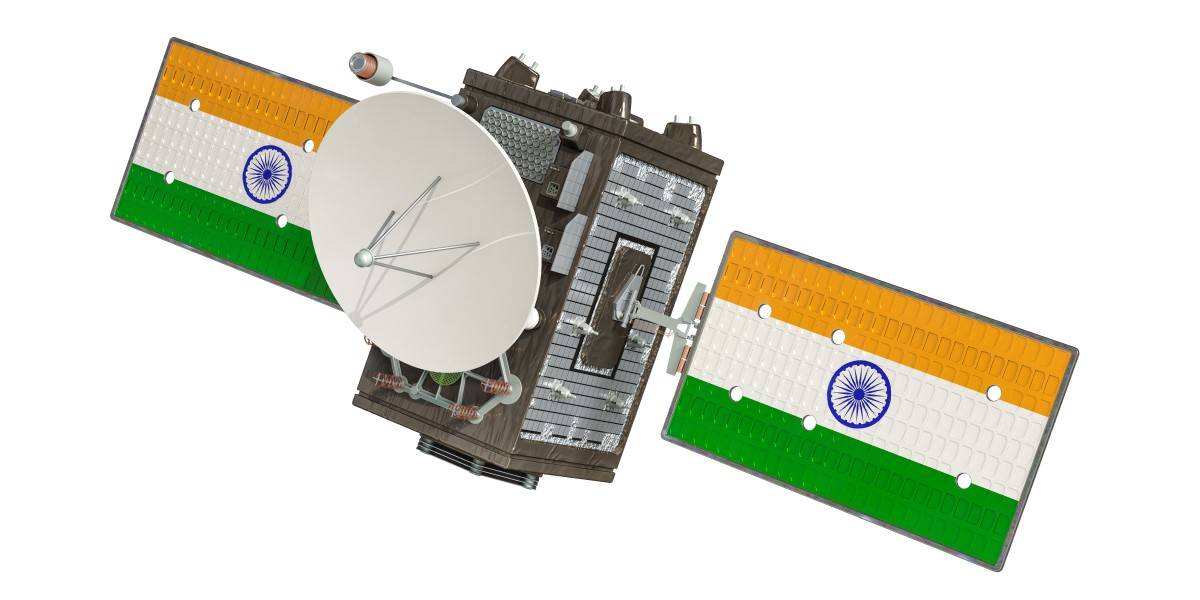India Seeks Chipset Manufacturers To Make Its Local GPS Alternative Fly Further Into The Market

India’s tech self-sufficiency drive has extended into satellite navigation, as the nation seeks manufacturers to help drive adoption of its own system.
The nation already possesses an eight-satellite navigation constellation, named NavIC, that it touts as having superior coverage of its own territory and the local region. NavIC is also strategically significant, because India possesses medium-range missiles and needs celestial guidance if it were ever to use them in anger. There’s no guarantee the USA would allow use of its GPS satellites under such circumstances.
Now a weekend Request for Proposal [RFP] appears to signal that New Delhi wants to spur adoption of NavIC by having a local manufacturer make chipsets that can receive the satellites’ signals.
“Government of India envisages commercialization of NavIC user receivers to promote an indigenous positioning technology,” the RFP says, adding: “Integrated NavIC and GPS receiver chip will improve overall signal availability and position accuracy in urban areas and will also support additional messaging facility unlike GPS-only receiver chip.”
The RFP notes that building devices locally “dovetails well with ‘Make in India’, and ‘Digital India’ programs” and will facilitate applications in a wide array of navigation, fleet management, and mapping applications.
Smartphone location services are another hoped-for outcome, which is interesting because NavIC-capable phones are already available thanks to Qualcomm’s decision to integrate it the kind of mid-range Snapdragon SOCs that are used in modestly-priced smartphones made in China and bought in India.
India and China do not get on well at present.
The RFP seeks entities capable of making NavIC receivers at the rate of a million a year and hopes the contracts will help local industry to grow.
NavIC includes a messaging system intended for use as a carrier of emergency information to ships at sea or other situations in which Indians are beyond the range of other networks. ®
From Chip War To Cloud War: The Next Frontier In Global Tech Competition
The global chip war, characterized by intense competition among nations and corporations for supremacy in semiconductor ... Read more
The High Stakes Of Tech Regulation: Security Risks And Market Dynamics
The influence of tech giants in the global economy continues to grow, raising crucial questions about how to balance sec... Read more
The Tyranny Of Instagram Interiors: Why It's Time To Break Free From Algorithm-Driven Aesthetics
Instagram has become a dominant force in shaping interior design trends, offering a seemingly endless stream of inspirat... Read more
The Data Crunch In AI: Strategies For Sustainability
Exploring solutions to the imminent exhaustion of internet data for AI training.As the artificial intelligence (AI) indu... Read more
Google Abandons Four-Year Effort To Remove Cookies From Chrome Browser
After four years of dedicated effort, Google has decided to abandon its plan to remove third-party cookies from its Chro... Read more
LinkedIn Embraces AI And Gamification To Drive User Engagement And Revenue
In an effort to tackle slowing revenue growth and enhance user engagement, LinkedIn is turning to artificial intelligenc... Read more

